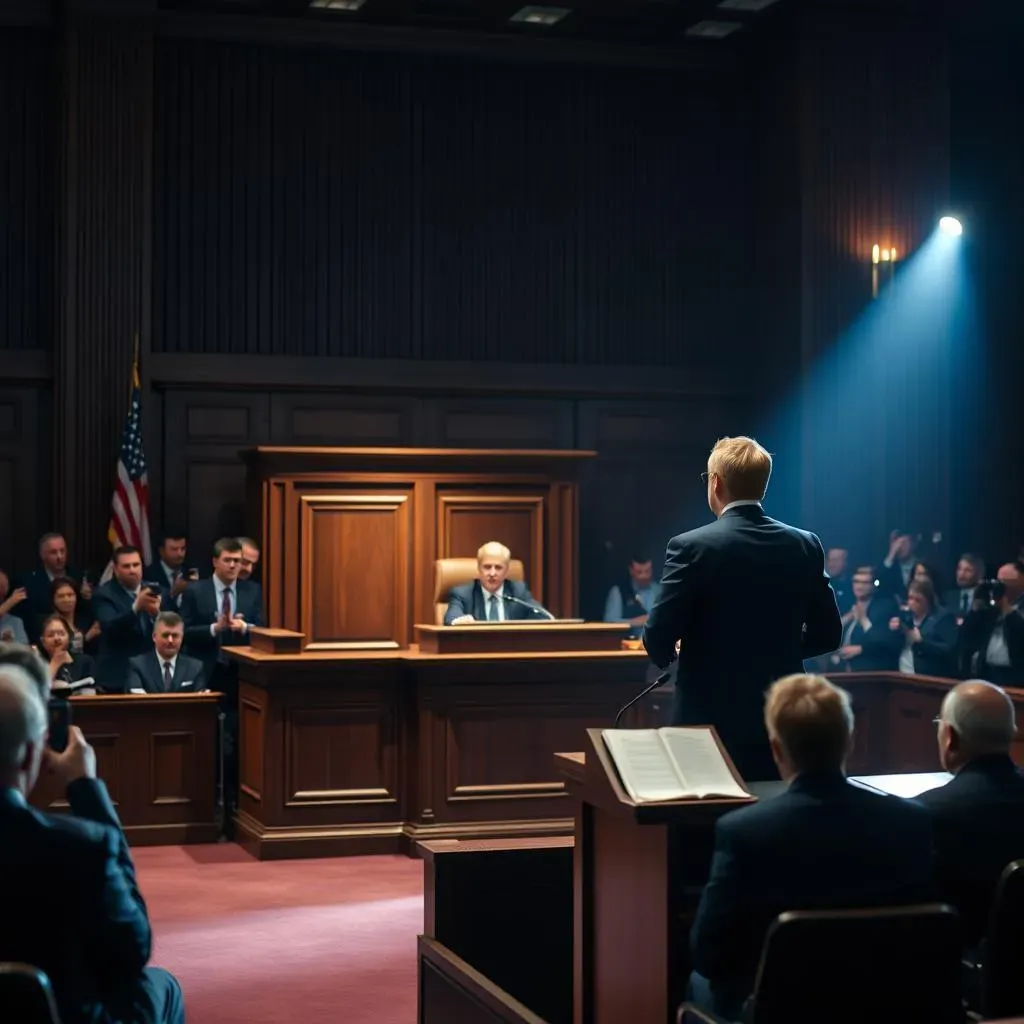Table of Contents
Ever wondered what happens when fame takes a nasty turn? We're talking about celebrity defamation lawsuits, those messy legal battles that erupt when someone says something untrue and damaging about a star. It's not just gossip; it's serious business with real consequences. This article will guide you through the ins and outs of these cases, exploring what defamation actually means, and how it impacts celebrities. We'll examine some high-profile examples, like the infamous Depp v. Heard trial, and see how these cases have shaped the legal landscape. You'll learn about the specific criteria that must be met to win a defamation case, and what options are available if you find yourself in a similar situation. So, buckle up as we navigate the complex world of celebrity defamation lawsuits, separating fact from fiction, and understanding the power and pitfalls of words.
Understanding Defamation: What It Really Means

Understanding Defamation: What It Really Means
Okay, so you're diving into defamation, huh? It's not as simple as just saying something mean about someone. Defamation, in the legal sense, is when you make a false statement of fact about someone to a third party that damages their reputation. Think of it like this: you're spreading a rumor that isn't true, and it hurts the person's standing in the community, their job, or their relationships. There are two main types: libel, which is written or published stuff like in a newspaper, magazine, or online, and slander, which is spoken. Both can get you into trouble, but proving it is the real challenge, and that's where the legal fun begins, believe me.
Now, it's not enough to just be offended by what someone said. For a statement to be considered defamatory, it has to meet a few key criteria. First, it has to be false. If it's true, it's not defamation, even if it's hurtful. Second, it must be communicated to a third party, meaning someone other than the person being talked about has to hear or read it. Third, it has to cause harm. This could be damage to their reputation, financial loss, or emotional distress. Finally, the person making the statement must have been at least negligent, meaning they didn't do their homework to make sure what they were saying was true. If the person is a public figure, like a celebrity, the bar is even higher. They have to prove "actual malice," meaning the person knew what they were saying was false or recklessly disregarded the truth. It's like they were out to get them.
Element | Description |
|---|---|
False Statement | The statement must be untrue. |
Communication to Third Party | Someone else must hear/read the statement. |
Harm | The statement must cause damage to reputation, finances or emotional state. |
Negligence/Malice | The person making the statement must have been at least negligent or had actual malice. |
HighProfile Celebrity Defamation Lawsuits: Case Studies

HighProfile Celebrity Defamation Lawsuits: Case Studies
Depp v. Heard: A Modern Media Circus
Okay, let's talk about Depp v. Heard. It was more than just a court case; it was a full-blown media spectacle. Johnny Depp sued his ex-wife Amber Heard for defamation after she wrote an op-ed implying he was abusive. The whole thing was televised, and the world watched as details of their tumultuous relationship unfolded. What made this case so unique was the level of public scrutiny, with social media playing a huge role in shaping public opinion. The jury ultimately sided with Depp on most counts, highlighting how difficult it can be for public figures to prove defamation, even when the world seems to be watching.
Cardi B vs. Tasha K: The Perils of Online Gossip
Then there’s the case of Cardi B versus Tasha K, a celebrity blogger. Cardi sued Tasha for spreading some pretty wild and untrue rumors about her, including claims that she had herpes and used drugs. This case is a prime example of how online gossip can escalate into serious legal trouble. Tasha K was ordered to pay Cardi over a million dollars in damages. It really shows that even though social media can feel like the wild west, there are still rules, and you can't just say anything you want about someone without consequences, especially if they are a celebrity.
These cases show the different ways defamation can happen and how hard it is to prove, especially for celebrities. They have to prove that the person who said the bad stuff either knew it was false or didn't care if it was true. It's not just about hurt feelings; it's about actual damage to their reputation and career.
Case | Key Issue | Outcome |
|---|---|---|
Depp v. Heard | Defamation stemming from an op-ed implying abuse. | Depp won most counts; highlighted difficulty of proving defamation for public figures. |
Cardi B v. Tasha K | Online gossip and false claims about drug use and health. | Cardi B won over a million in damages, showing consequences of online defamation. |
Navigating Defamation: Legal Options and Your Rights

Navigating Defamation: Legal Options and Your Rights
When Words Hurt: Taking Action
Okay, so you think you've been defamed? It's time to figure out your options. First things first, document everything. Keep copies of the statements, whether they're online posts, articles, or emails. Note the dates, times, and where they were published. This is your evidence, and the more you have, the better. Next, try to identify who made the statement. Sometimes, it's obvious, but other times, it might be someone hiding behind a fake profile. If it's online, you might need to involve a lawyer to subpoena the platform for information. Once you have that info, you can consider sending a cease and desist letter, telling them to stop their actions, or face legal action.
Legal Pathways and Alternatives
Now, if a cease and desist letter doesn’t work, you might need to think about a defamation lawsuit. But these things can be expensive and time-consuming, so it's not a decision to take lightly. You’ll need to prove all the elements of defamation, and if you're a public figure, that "actual malice" standard is going to be a hurdle. Before jumping straight to court, you could also explore alternative options like online reputation management. Sometimes, getting the content removed or buried in search results can be enough. Another option is alternative dispute resolution, like mediation, where you try to negotiate a solution with the other party. It's basically trying to talk it out before things get too messy, but that won't always work, and sometimes a lawsuit is the only way to go.
Action | Description |
|---|---|
Document Everything | Collect evidence like posts, articles, and emails. |
Identify the Author | Find out who made the defamatory statement. |
Cease and Desist Letter | Send a notice demanding they stop the behavior. |
Defamation Lawsuit | Consider legal action if necessary, be prepared for a long process. |
Online Reputation Management | Work to remove or bury the harmful content. |
Alternative Dispute Resolution | Try mediation before going to court. |